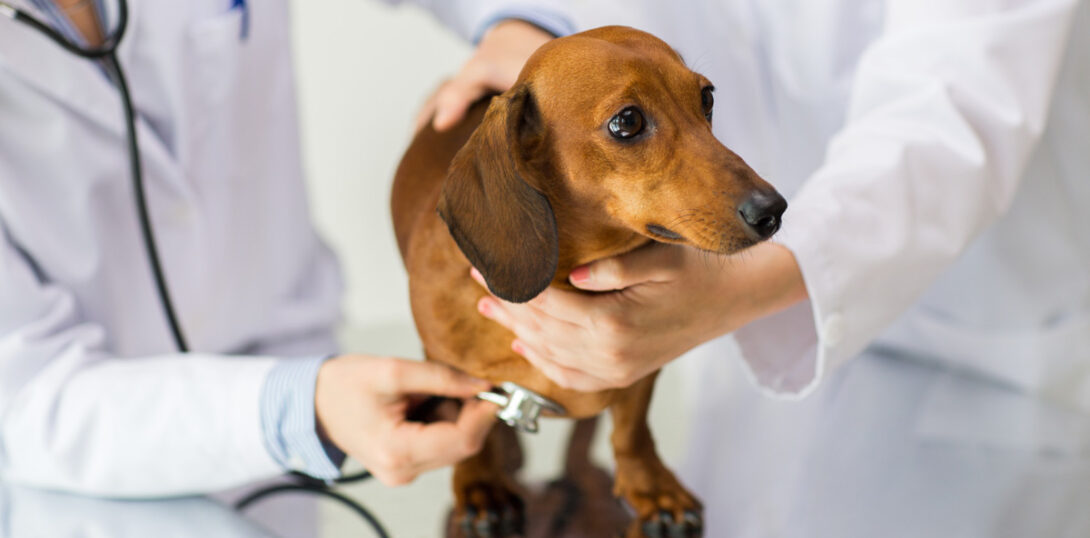Should You Buy Pet Insurance?
How to decide if paying for pet insurance is worth it.
With pets feeling more and more like “kids” in our culture, there’s no question most of us would move heaven and earth to take care of our dogs, cats, and other furry four-leggeds.
But pets cost money—in some cases, serious money. Never mind the price of a purebred puppy, which can range from $500 to $3000. Food, supplies, boarding, and routine vet care are a constant cost that most owners budget and are prepared for.
Where things get sticky is when unexpected things happen. A car accident, a torn ligament, swallowing a toy—all of these can require surgery, intensive care, labs and blood work, anesthesia, follow-up appointments, or physical therapy. Your bill could easily be many thousands of dollars.
That’s where the average pet owner faces difficult or even heartbreaking decisions.
Only 41% of Americans can cover a $1000 emergency with their savings. About 12% said they would not be able to cover an emergency at all.
This means if your pet suddenly needs a $5,000 knee replacement or cancer treatment, most owners might have to decide not to pursue treatment, or worse yet, relinquish or have their pet put to sleep.
How Pet Insurance Helps Pet Owners
Pet insurance works a lot like it does for people. You research and shop for a policy, read and compare the benefits, then purchase a policy that best fits.
Pet insurance policies cover accidents, injuries, and illnesses. Similar to human health insurance, pet insurance policies usually have annual deductibles, restrictions, and some limits.
The average monthly pet insurance premium for 2021 is $48.78. Keep in mind the cost changes based on the type, breed, age, and health of the pet, as those can increase or decrease risk factors.
If you have a pet that lives 12 years and you pay insurance throughout its lifetime, you would pay on average $7,024.32 in premiums. Sounds like a lot—until you factor that a single event could nearly cover that lifetime cost, like a one-time hip replacement for your German shepherd (it’s a common problem for them) that runs you $6,000. And that’s not to mention the other mischief our pets can get into, like parasites, infections, broken bones, obstructions, unexpected litters, and more.
How to Decide if You Need Pet insurance
Ask yourself these simple questions:
- Do I have a steady income that allows me to prioritize the care of my pet?
- Do I have a sufficient emergency fund to cover an unexpected illness or injury?
- Is my pet a purebred animal?
- Is my pet older or with pre-existing conditions?
If you answered “Yes” to 1 and 2, and “No” to 3 and 4, you might find that investing money in a savings account dedicated to pet care is a better option. If you set aside the average monthly premium (around $50) into an account, you’ll be in good shape should the unexpected arise.
If you answered the opposite, then pet insurance is definitely worth the investment. Why? It would protect you from large upfront payments that might end up being put on credit cards, which will end up costing more once you take interest into account.
Also, purebred pets are often badly bred by amateurs, propagating conditions like hip dysplasia, glaucoma, diabetes, and heart problems. These genetic conditions are chronic and expensive.
Even well-bred animals of certain breeds can be costly—the most expensive breeds to insure are English bulldogs, Bernese Mountain dogs, Rottweilers, Great Danes, and French bulldogs, according to Trupanion insurance. These breeds are more prone to dysplasia, allergies, respiratory issues, and cancers.
Bottom Line on Pet Insurance
If you’re a disciplined saver with plenty of cash in the bank, you might skip insurance.
For the average American pet owner, a good pet insurance policy can be an absolute lifesaver and provide peace of mind.
When it comes to financial peace of mind, a financial planner can help you set savings goals based on your specific priorities and values (including pets). At Aspen Wealth Strategies, we help you consider all aspects of your lifestyle to ensure your best and most secure future. Let’s chat about your financial goals and dreams today.
